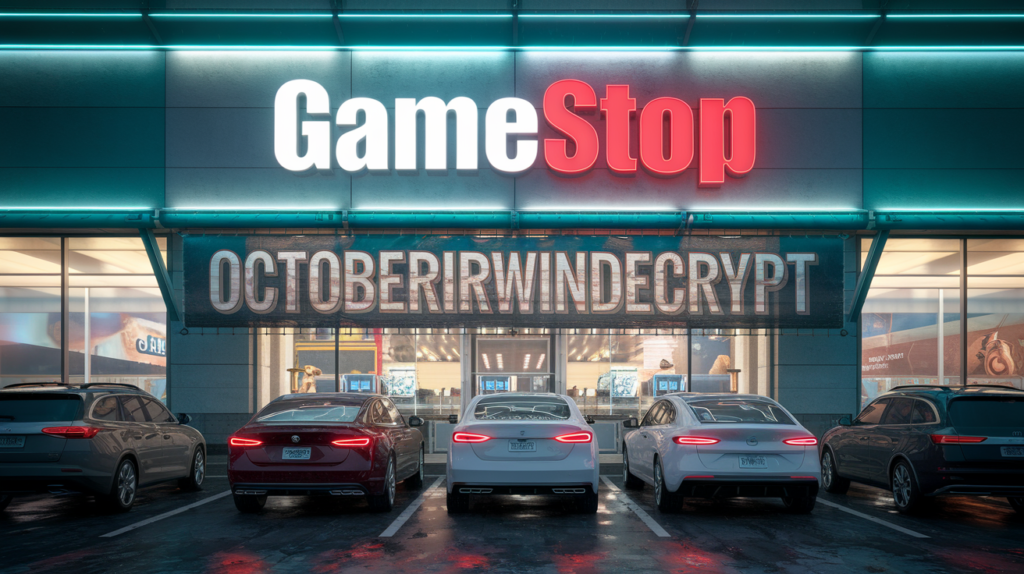GameStop has not failed to create headlines the last few months in, well, non-conventional ways-from a successful short squeeze of stock in 2021 to the effort to push NFT and cryptocurrency in the boldest manner possible. Of such efforts, some are clearly generating much excitement, whereas others are unsure of the nature of their endeavor. One of the recent issues that have come into notice is “gamestop octoberirwindecrypt.” While this term has no apparent, clearly understandable meaning, it might refer to the journey that GameStop is undergoing in the digital asset world, specifically the difficulties and changes pertaining to NFTs and cryptocurrencies during October 2023.
Let’s dive into what might be fueling GameStop’s October, its implications for the company’s digital strategy, and what it might be telling us about the future of gaming and cryptocurrency.
NFT Marketplace: A Daring Gamble
In July 2022, GameStop entered the NFT space. In a bid to leverage on growing trends in digital collectibles, GameStop aimed at turning into a platform in which gamers, creators, and collectors can buy, sell, and trade non-fungible tokens. Platforms like OpenSea spearhead the GameStop NFT marketplace. The game, in its marketplace is developed on the Ethereum blockchain; users can own control in their wallets.
However, the easy highway to success has been missing all along. Initial euphoria slowly faded as GameStop realized the problems were actually piled on top of its difficulties. Regulatory issues dogged the crypto space where competition and NFT markets exhibited high volatility. To this, some new giant competitors, coupled with the regulatory uncertainty facing crypto industries, left gameStop with a problem and Oct is when the oct, irwindecrypt; he said GameStop had plans to close its marketplace over the regulatory uncertainty concerning this industry.

The Digital Asset Wallet: An Uncertain Future
GameStop launched a digital asset wallet in its NFT marketplace in May 2022. The users would use this wallet for the safe storage, sending, and receiving of digital currencies and NFTs. GameStop positioned itself as a self-custodial wallet provider by letting users hold their assets and thus promoting decentralization and user control over digital assets.
However, like the NFT marketplace, the wallet was also under regulatory issues. On November 2023, GameStop said it will no longer support the digital asset wallet due to increased uncertainty in the regulatory landscape. The sudden shutdown of both the NFT marketplace and wallet has left most wondering if the company actually had a long-term plan in the digital space.
Regulatory Uncertainty: The Elephant in the Room
One of the major reasons GameStop has seemingly struggled in the digital asset is regulatory uncertainty. As governments and finance institutions globally struggle to put a handle on how exactly to regulate cryptocurrencies, NFTs, and these decentralized technologies, businesses like GameStop have had to respond to a moving target and ever-changing landscape. One could see this Gamestop Octoberirwindecrypt stage as a reposition or recalibration to this unpredictability.
Many in the industry had been sounding alarms over increased regulatory scrutiny of the crypto space by October 2023. The retreat by GameStop in deciding to wind down its operations in this area may have thus responded to such pressures, signaling a retreat from what it earlier ambitions were. However, this also points out how crucial it is for businesses looking to thrive in such an evolving world of digital assets that regulatory clarity should be prioritized.
The Effect on GameStop Business Model
GameStop is moving out of the NFT marketplace and the digital asset wallet. This is a serious question for the future of the company. Traditionally, GameStop was a store where one went to buy physical video games, consoles, and accessories. However, the digital entertainment growth forced the company to experience declining sales through its brick-and-mortar stores. Therefore, venturing into NFTs and cryptocurrency was an apparent attempt at reviving the brand and diversifying revenue streams.
With the closure of its digital asset business lines, GameStop must decide on a course of action at such a time when the market landscape is changing. It might return to its traditional roots: brick-and-mortar retail? Or the firm will continue to tinker with new ventures through some new, tech-focused prism? The Gamestop octoberirwindecrypt could be one of those firms’ signs of leaving behind digital assets and going more towards old-school gaming.

Reactions within Community and among Investors
Reactions to GameStop’s move to wind down its digital asset efforts have been mixed. While some investors and community members view this as an indication that the company is adapting to the realities of a turbulent market, others see it as a failure of the company’s vision for the future.
GameStop has a loyal following, especially since the drama of the 2021 stock-short squeeze. Its fans have become so invested in the company’s financial and emotional success. The October Gamestop event could be a turning point for the company’s relationship with its faithful. If the company’s digital strategy fails, it will lose the traction it gained during the meme-stock mania. In return, the pivot might be what rescues the brand’s credibility. What’s Next for GameStop?
Well then, the future of GameStop? To say that the company will experiment and explore new frontiers is already proven; whether it is in a digital marketplace, NFTs, or even a cryptocurrency, GameStop showed that it wants to belong to the next generation. But the company must, at the same time prepare itself for the challenges faced in an increasingly uncertain environment of regulation.
However, GameStop can learn from the October phase of Gamestop. With this re-evaluation of the digital strategy embracing the new trends in the world of gaming and fitting in with the evolving customer needs, GameStop might find a new road to growth. The art of the balance will lie in between its innovative efforts and practical considerations regarding how the regulatory and technological environment unfolds.
Also Read : Cleveland Cavaliers vs Milwaukee Bucks Match Player Stats
Conclusion
In a nutshell, Octoberirwindecrypt most probably refers to GameStop’s journey into NFTs and cryptocurrency-what is most likely about it. The company announced its decision to wind down its NFT marketplace and digital wallet due to issues that the company encountered as a result of uncertainty on the regulatory front. Although GameStop’s experiments in the digital space haven’t yet born fruit, they have been very good lessons and insights into how the cryptocurrency space works. The future of GameStop is not known, but the willingness to experiment speaks to the idea that GameStop will continue to grow and evolve with the changes in the world.
The end is left to the company to decide whether it should go back to its roots in physical retail or continue to venture into the digital frontiers. This will be determined by the ability of the company to change with shifting trends and challenges for long-term success. The Gamestop Octoberirwindecrypt moment is but one chapter in this story, and only time will tell how it will shape the next phase of GameStop’s journey.

